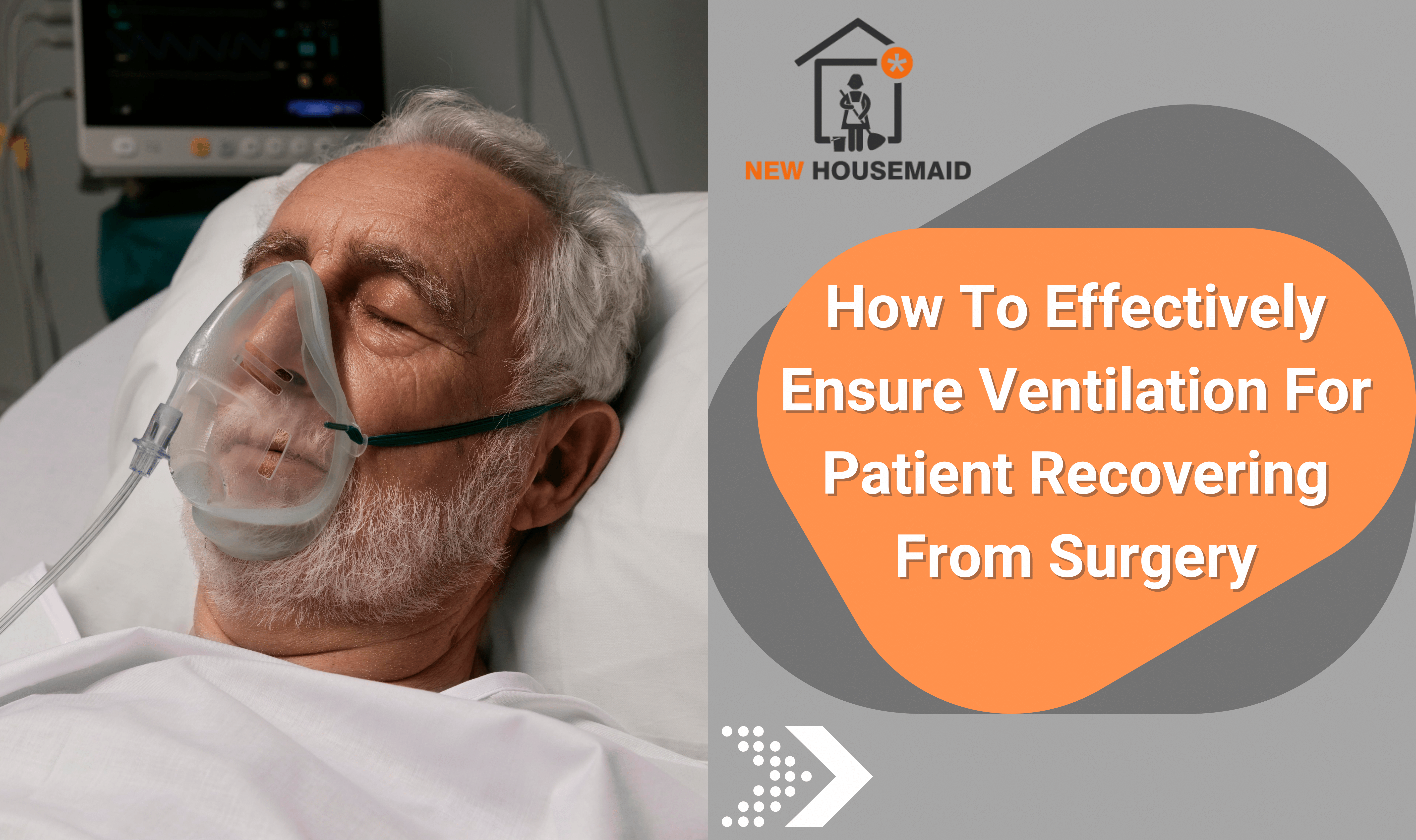
How to Effectively Ensure Ventilation for Patient Recovering from Surgery
Ensuring ventilation is crucial for maintaining air quality, comfort, and overall health within the home, especially for patients recovering from surgery. Here’s how to effectively ensure ventilation:
Natural Ventilation
Take advantage of natural ventilation by opening windows and doors to allow fresh air to circulate throughout the home. Open windows on opposite sides of the house to create cross-ventilation, which helps draw in fresh air and expel stale air.
Mechanical Ventilation Systems
Install mechanical ventilation systems, such as exhaust fans in kitchens and bathrooms, to remove moisture, odors, and pollutants from indoor air. Use these fans while cooking or showering to prevent the buildup of humidity and improve air quality.
Air Purification Devices
Consider using air purifiers with HEPA filters to remove airborne pollutants, allergens, and contaminants from indoor air. Place air purifiers in commonly occupied areas of the home, such as bedrooms or living rooms, to help reduce exposure to pollutants and allergens.
HVAC Systems
Maintain heating, ventilation, and air conditioning (HVAC) systems in good working condition to ensure proper ventilation and air circulation throughout the home. Change air filters regularly according to manufacturer recommendations to prevent the buildup of dust, allergens, and debris that can impair system performance and indoor air quality.
Outdoor Air Quality
Be mindful of outdoor air quality conditions, such as pollution, pollen levels, and seasonal allergens, that can affect indoor air quality. Monitor air quality reports and take steps to minimize exposure to outdoor pollutants by keeping windows closed during periods of poor air quality or high pollen counts.
Moisture Control
Manage indoor humidity levels to prevent moisture buildup, which can lead to mold growth and indoor air quality issues. Use dehumidifiers in damp or humid areas of the home, such as basements or bathrooms, to reduce moisture levels and prevent mold and mildew growth.
Ventilation in Specific Areas
Pay particular attention to ventilation in areas of the home where patients spend the most time, such as bedrooms and living rooms. Ensure that these areas have adequate airflow and ventilation to promote comfort and well-being during the recovery process.
Regular Air Exchange
Aim for regular air exchange within the home by periodically opening windows and doors to allow fresh air to enter and stale air to exit. Consider scheduling times throughout the day for brief ventilation periods, especially in the morning and evening when outdoor air quality may be better.
Monitor Indoor Air Quality
Use indoor air quality monitors to track levels of pollutants, humidity, and other factors that can affect air quality within the home. Monitor trends over time and take action to address any issues that may arise, such as increasing ventilation or using air purification devices.
By ensuring effective ventilation within the home, patients can enjoy improved indoor air quality, comfort, and overall well-being during the post-operative recovery process.
New Housemaid for patient care ensures that patients receive high-quality, compassionate support that promotes their well-being and enhances their quality of life. Call us today.


